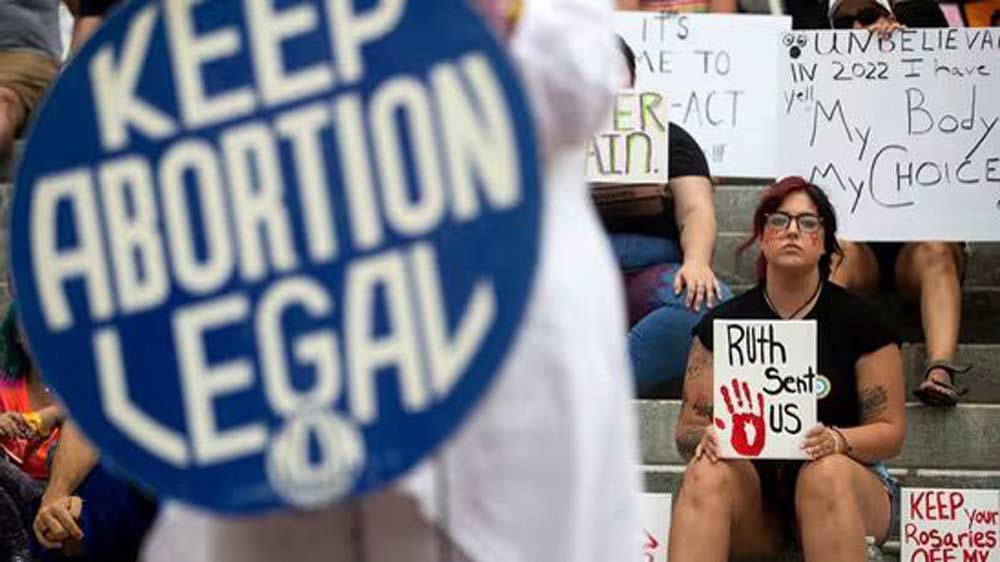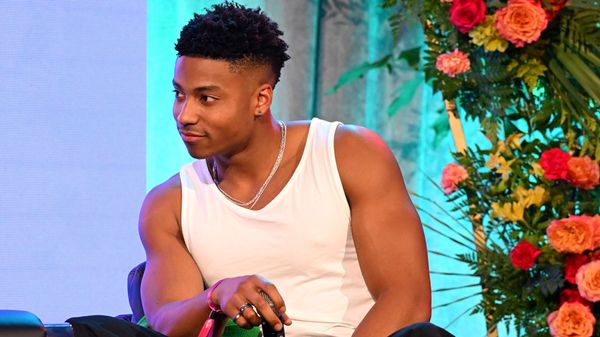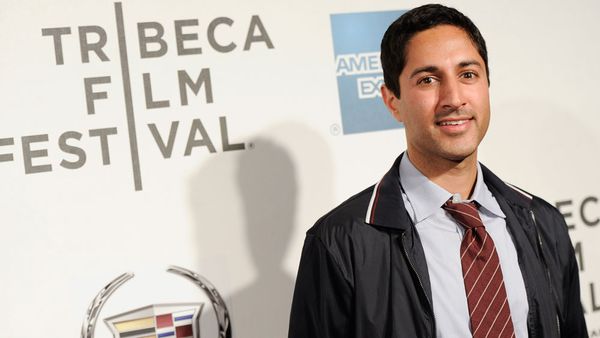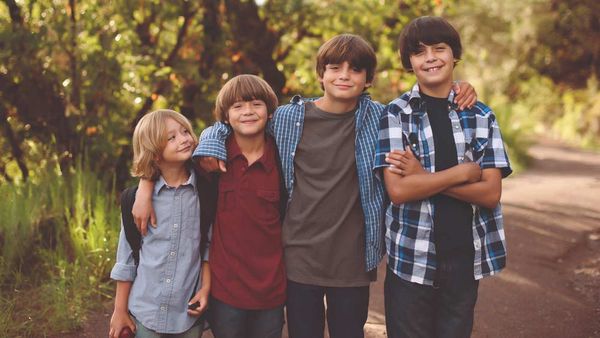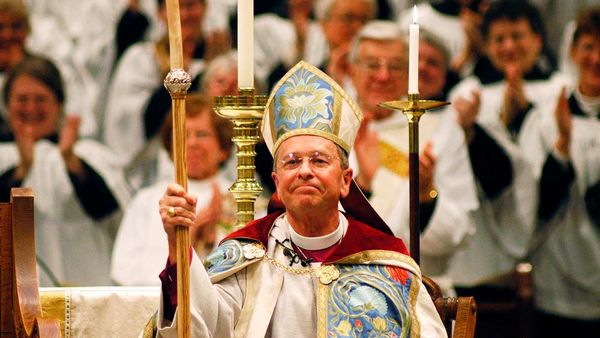September 20, 2006
Gay Marriage Debated at Brown University
Scott Darby READ TIME: 5 MIN.
About 300 people, mostly students, attended a debate between two nationally recognized figures in the gay marriage controversy at Brown University in Providence Sept. 19.
Brown's Taubman Center for Public Policy sponsored the debate as part of its Masha Dexter Lecture Series
Davina Kotulski is executive director of Marriage Equality USA (www.marriageequalityusa.org) and the author of "Why You Should Give a Damn About Gay Marriage." Billed as the "leading voice of the new marriage movement," Maggie Gallagher is president of the Institute for Marriage and Public Policy and co-author of "The Case for Marriage: Why Married People are Happier, Healthier, and Better-Off Financially."
Kotulski, a clinical psychologist who with her spouse was the 17th couple married in San Francisco under Mayor Gavin Newsom, brought out two containers, each about 10 inches in height. One, a little more than half full, had candy hearts representing all of the rights heterosexual married couples have. The second represented what marriage rights same-sex couples have. It was empty.
The containers symbolized Kotulski's theme of deep unfairness, discrimination and the stark difference in rights afforded heterosexual couples.
"Same sex couples want the right to marry the person they love, she said. Kotulski told the story of a couple from California who were traveling and needed to go to an emergency room in Maryland. They had the power of attorney and other legal documents, but had left them at home. The hospital in Maryland refused to allow the injured partner, Robert, visitation with his partner until Robert's parents arrived. However, it was too late. "Robert had died alone" Kotulski said.
Kotulski also pointed out that federal employees cannot give their pensions to their partners upon death and that spouses cannot collect unemployment insurance if a couple moves so one partner can take another job. She went on to describe about 10 or 15 of the 1,938 rights that gay couples don't have. "Even inmates on death row have a fundamental right to marry, according to the Supreme Court," she observed. "Scott Peterson, who killed his pregnant wife, has the right to marry".
"People ask me 'why not civil unions?'," she continued. "And I say 'civil unions are kind of like driving a Yugo...marriage is more like a Mercedes.'" Kotulski then told the story of a couple she knew, Bill and Marvin. "Upon Bill's death, Marvin had to go through the disabling heartache of his partner dying. On top of that, he unexpectedly faced immediate homelessness and poverty. Although Bill and Marvin had all the right legal documents, Marvin was unable to collect Bill's pension because of a snafu at the federal level. Someone took Marvin in, but if not for that, he would be homeless. Marvin's monthly Social Security benefit didn't even cover the cost of his health plan, let alone rent, food, utilities, or any of the other basics of life."
Gallagher, also a nationally syndicated columnist and author of two other books on marriage,contends traditional marriage is best for society and children, citing information contained in "Do Mothers and Fathers Matter?", a policy brief published on her organization's website, www.imapp.org, The brief was written by Gallagher and Joshua Baker, also of the institute.
"In the last thirty years," the white paper reads, "thousands of studies evaluating the consequences of marriage have been conducted in various disciplines (e.g., psychology, sociology, economics, and medicine). Twelve leading family scholars recently summarized the research literature this way: 'Marriage is...associated with an impressively broad array of positive outcomes for children...increases the likelihood that children enjoy warm, close relationships with parents...reduces child poverty'".
"Divorce increases the risk of school failure for children," the brief continues. "And reduces the likelihood that they will graduate from college and achieve high status jobs...Children in intact married homes are healthier, on average, than children in other family forms...Babies born to married parents have sharply lower rates of infant mortality...Divorce increases rates of mental illness and distress in children."
Another of Gallagher's points is that the state has the right to encourage traditional marriage, because of its attendant likelihood of the creation of children, so that the society survives. Out of several human relationships that are very special, she asks, "Why is marriage the exception?" referring to the fact that it's the only relationship given a special legal status.
"The European Union is having 1.4 children" per couple, she reported. "You need 2.1 children to replace the population." Gallagher added that there "needs to be enough babies for your society to survive...societies who don't do enough in channeling energy into making the next generation don't survive." She concluded that, because of all this, it's "rational for the state to prefer marital unions [meaning heterosexual unions] to any other kind." When an audience member expressed feelings that current law is reminiscent of segregation in the South, Gallagher said that "to treat different things differently is not separate but equal."
What about the argument that the U.S. was founded on the idea of individual rights and that anyone should be able to marry anyone they want to? "You can't have an individual right to change a legal and social institution like marriage" Gallagher said. "If you consider it an individual right, then you could just decide that marriage means, you know, you and your best friend starting a business corporation, and who's to tell you otherwise?...Particularly if what you want is just the social recognition...there's no real alternative to realizing that what you're asking cannot be understood just in individual rights. It's not just a benefit and not just a right."
Another of Gallagher's concerns is "If we move to gay marriage, you're going to have a society where it's rude or bigoted to say there's something special about heterosexual marriage." She also said, in response to an audience question, that equal marriage becoming law would be "changing the meaning of an important legal institution," pointing out that "in virtually every known society there's some form of marriage" and added: "If sex between men and women didn't make babies, it [heterosexual marriage] would not be a universal social institution".
"If we go to gay marriage, the power of the courts will be used to marginalize people who hold pro-[heterosexual] marriage views," she said.
Gallagher and her child were abandoned by a previous partner and she takes a special interest in fatherless children. "There are 80 million children in the U.S.," she reported. "Twenty-four million go to sleep in a home without a father."
Gallagher believes that if society confirms heterosexual marriage as a special institution, the incidence of fatherlessness will decrease. She said that 36 percent of children in the U. S. are born outside marriage, and that all the worst social ills that can affect children, such as poverty, mental illness, and juvenile and adult criminality happen when parents split up. Speaking about emotional development, "Children take their parents inside of them" she noted.
Kotulski countered, saying "whether or not gay people marry, there are still going to be fatherless children," and added "Substance abuse, poverty, violence--these are the things that are causing the crack in the family."
Kotulski also mentioned that when same-sex couples attempt second-parent adoptions, it costs them $4,000 and they are only able to adopt after a year of state scrutiny. Additionally, she points out there's an emotional impact on children stemming from their parents being victims of discrimination. "Every minute we wait, there are families being harmed because we don't have equality," she said.
Scott Darby is a freelance writer who lives in Providence. He majored in communications at Roger Williams University.

